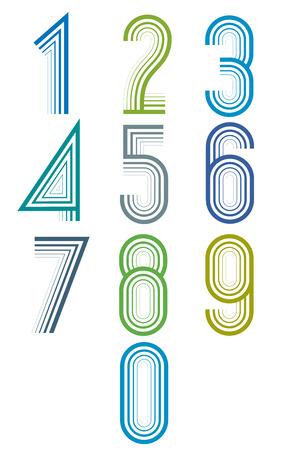Introduction to Name Numerology in the UK
Name numerology, a practice that finds its roots in ancient civilisations, has long captivated those seeking to uncover the hidden meanings and influences behind personal names. At its core, name numerology assigns numerical values to letters, allowing practitioners to interpret character traits, destiny, and life patterns. In the United Kingdom, this age-old art has found a unique resonance, blending seamlessly with the country’s rich tapestry of history, tradition, and linguistic diversity. As British names often reflect local dialects and cultural influences, understanding the nuances of regional spellings becomes crucial for accurate numerological readings. This introductory section offers an overview of how name numerology principles are applied within the UK context, highlighting not only its enduring significance but also the particular considerations that arise from the nation’s linguistic heritage.
2. The Diversity of Regional Dialects and Name Spellings
The United Kingdom is renowned for its rich tapestry of regional dialects and accents, each offering a unique flavour to everyday speech and, intriguingly, to the way names are spelled and pronounced. From the rolling hills of Yorkshire to the rugged Highlands of Scotland, from bustling Welsh valleys to the vibrant communities of Northern Ireland, traditional name spellings often reflect local linguistic heritage. These variations are not merely superficial; they echo deep-rooted histories, cultural identities, and centuries-old customs that have shaped how people refer to themselves and one another.
The Influence of Accents on Name Pronunciation
Across England, a single name such as “Catherine” may be pronounced with subtle differences in Kent versus Cumbria. In Scotland, names like “Ewan” or “Mhairi” reflect Gaelic influences both in spelling and enunciation. Welsh names such as “Llewelyn” or “Siân” carry distinctive sounds derived from the Welsh language, while Irish Gaelic names like “Niamh” or “Aoife” present their own unique challenges for those unfamiliar with local pronunciations.
Regional Variations in Traditional Name Spellings
Let us consider how these regional nuances manifest in actual name spellings. Below is a table illustrating some common first names across the UK and their traditional spellings influenced by regional languages:
| Region | Traditional Name | Regional Spelling/Variant |
|---|---|---|
| England | Katherine | Catherine / Kathryn |
| Scotland | John | Iain / Eoin |
| Wales | Jane | Sian (Siân) |
| Northern Ireland | Eve | Aoife |
| Ireland (for comparison) | Neve | Niamh |
The Cultural Significance Behind Name Choices
These differences are more than just orthographic curiosities; they represent an individual’s connection to place, language, and ancestry. A name chosen with its regional spelling can signify pride in one’s roots or a wish to preserve family tradition. For numerology, however, every additional letter or altered character can shift the energetic value of a name, making these distinctions especially important when interpreting personal charts within the UK context.

3. How Regional Spellings Influence Numerological Calculations
When exploring the numerology of names across the United Kingdom, one cannot overlook the influence of regional spellings shaped by local dialects and languages. This subtle yet significant factor can alter the very numbers that define a person’s character, destiny, and life path. In regions such as Scotland, Wales, and Northern Ireland, traditional languages like Gaelic and Welsh bring forth unique variants of common names. For instance, the name “John” may appear as “Seán” in Irish or “Ieuan” in Welsh, each spelling carrying its own arrangement of letters. Since numerology is rooted in assigning numerical values to individual letters, even a small change in spelling—whether an extra vowel, a consonant shift, or the use of diacritical marks—can lead to different sums and thus distinct numerological interpretations.
Moreover, some regional spellings preserve ancient linguistic roots that are no longer present in modern English. Names such as “Ewan” (Scottish) or “Siôn” (Welsh) highlight how local identity is preserved through orthography, impacting the numerological outcome. It is not uncommon for families to choose traditional spellings as a matter of pride or heritage, sometimes unaware that this choice subtly alters the energetic blueprint described by their name’s numbers. As a result, someone named “Caitlin” in England might have a different numerological profile from her cousin “Caitlín” in Ireland, despite sharing what appears to be the same name phonetically.
This rich tapestry of regional variation means that numerologists working within the UK must approach each name with cultural sensitivity and attention to local orthography. The practice calls for an understanding not just of numbers but also of linguistic history—a true weaving together of tradition, language, and mystical calculation.
4. Case Studies: Common British Names and Their Variants
The United Kingdom’s rich tapestry of regional dialects and linguistic traditions has given rise to a fascinating array of name variants, each carrying subtle shifts in spelling, pronunciation, and, consequentially, numerological value. To illustrate how these differences manifest in the realm of name numerology, let us consider several popular British names and their regional counterparts, examining the resulting variations in their numerological interpretations.
William vs. Wullie vs. Gwilym
One of the most enduring names across the UK is “William,” found in English, Scottish, and Welsh communities alike but often spelled or pronounced differently depending on locality. For instance, “Wullie” is a cherished Scottish diminutive, while “Gwilym” is the Welsh equivalent. Below is a table showcasing how these spelling variations affect their core numerological number (using the classic Pythagorean system):
| Name Variant | Region | Numerology Calculation | Core Number | Interpretation Overview |
|---|---|---|---|---|
| William | England (Standard) | W(5)+I(9)+L(3)+L(3)+I(9)+A(1)+M(4)=34; 3+4=7 | 7 | Introspective, analytical mind; seeks truth and wisdom. |
| Wullie | Scotland | W(5)+U(3)+L(3)+L(3)+I(9)+E(5)=28; 2+8=10; 1+0=1 | 1 | Pioneering spirit; leadership qualities; individualism. |
| Gwilym | Wales | G(7)+W(5)+I(9)+L(3)+Y(7)+M(4)=35; 3+5=8 | 8 | Material success; ambition and authority; pragmatic approach. |
Sara vs. Sarah vs. Sahra
The classic feminine name “Sarah” also presents regional spelling variations that are influenced by family heritage and local custom. The English standard “Sarah,” the streamlined “Sara,” and occasionally “Sahra”—seen in multicultural or Northern communities—each yield slightly different numerological outcomes:
| Name Variant | Region/Context | Numerology Calculation | Core Number | Interpretation Overview |
|---|---|---|---|---|
| Sara | Modern/International UK usage | S(1)+A(1)+R(9)+A(1)=12; 1+2=3 | 3 | Clever communicator; creative energy; sociable personality. |
| Sarah | Traditional English/Welsh usage | S(1)+A(1)+R(9)+A(1)+H(8)=20; 2+0=2 | 2 | Diplomatic, sensitive, nurturing character. |
| Sahra | Northern/Multicultural UK usage | S(1)+A(1)+H(8)+R(9)+A(1)=20; 2+0=2 | 2 | Diplomatic, sensitive, nurturing character. |
The Impact of Small Changes: A Traditionalist’s Reflection
As demonstrated above, a simple shift in spelling—often guided by regional dialect or family tradition—can subtly alter the vibrational essence of a name according to numerological principles. Where “William” connotes introspection and analysis (7), its Scottish cousin “Wullie” radiates individuality (1), while “Gwilym” brings forth material strength (8). Even among female names, dropping or adding a letter can swing the interpretation between communicative creativity (Sara) and gentle diplomacy (Sarah/Sahra).
A Broader Perspective on Regional Name Numerology
This interplay between language and numerology invites us to consider not only the sounds we speak but also the silent resonance behind each letter—a reminder of our diverse yet interconnected British heritage. In subsequent sections, we will explore practical guidance for those wishing to navigate these nuances when choosing names for themselves or their loved ones.
5. Cultural Significance and Personal Identity
Across the diverse regions of the United Kingdom, naming traditions are deeply intertwined with local culture and heritage. Whether one is from the rolling hills of Yorkshire or the Celtic heartlands of Wales, names often carry echoes of family lineage, historical events, and linguistic quirks unique to each area. These regional influences not only shape how names are spoken and spelled but also contribute profoundly to a persons sense of identity and belonging.
The Role of Local Dialects in Naming
Regional dialects impact both the pronunciation and spelling of names, sometimes giving rise to variations that are distinct from standard English forms. For example, the name “Catherine” may appear as “Kathryn” in certain parts of England, while in Scotland it could be rendered as “Catriona.” Such differences reflect not just linguistic preferences but also a collective memory passed down through generations. Each variation preserves a piece of local history and pride, making a simple name an emblem of ones cultural roots.
Name Numerology: A Window into Cultural Nuances
Name numerology offers another lens through which to appreciate these regional distinctions. By assigning numerical values to letters based on traditional systems, numerology can reveal subtle influences embedded within a names structure. When a name’s spelling shifts due to local custom—say, “Sean” versus “Shawn”—the numerological profile changes as well, potentially altering interpretations related to personality traits or life path. Thus, numerology becomes a tool for understanding not only individual characteristics but also the rich tapestry of regional identity.
Personal Identity in a Changing World
In contemporary British society, where movement between regions is common and cultural boundaries are more fluid than ever, individuals often find themselves balancing inherited naming traditions with modern adaptations. Numerology can help illuminate how these evolving identities retain threads of their origins while embracing new influences. Ultimately, exploring the interplay between regional dialects, spellings, and numerological insights deepens our appreciation for the living heritage encapsulated in every British name.
6. Practical Tips for Accurate Name Numerology in the UK
When conducting name numerology readings within the diverse linguistic landscape of the United Kingdom, practitioners and individuals alike must tread with thoughtful care. Regional dialects, localised spellings, and cultural naming conventions can all subtly influence the outcome of a numerological analysis. Below, we offer some traditional yet practical advice to ensure your readings remain both accurate and respectful of the UKs rich tapestry of names.
Recognise Regional Variations
First and foremost, be aware that names may have different standard spellings or pronunciations depending on whether they hail from Scotland, Wales, Northern Ireland, or various parts of England. For instance, “Sean” in Ireland might appear as “Shawn” elsewhere; similarly, “Euan” in Scotland could be rendered as “Ewan” in England. Always ask about the origin and preferred spelling before beginning your calculation.
Ask for Clarification
If you are unsure about the correct spelling or pronunciation of a client’s name, do not hesitate to seek clarification. This ensures that you are working with the version most meaningful to the individual—crucial for an authentic numerological reading.
Document Alternative Spellings
It is wise to make note of any alternative spellings or regional forms associated with a name. When possible, explore how each variant affects the numerological profile, as subtle differences can yield varied insights. This approach shows both diligence and respect for regional heritage.
Consult Local Resources
Consider using local sources such as parish records, historical documents, or community elders who may provide guidance on traditional spellings and name forms in specific regions. Such resources often reveal nuances that modern databases overlook.
Respect Cultural Significance
Names in the UK often carry deep familial or cultural significance—especially those rooted in Celtic languages or local dialects. Acknowledge this during your reading, as understanding context enriches interpretation and fosters trust with clients.
Be Mindful of Anglicisation
Some names have been anglicised over time; for example, the Welsh “Ieuan” may become “John.” When possible, include both original and anglicised forms in your analysis to honour both heritage and personal identity.
Communicate Clearly
Finally, share your findings transparently with clients, explaining how regional variations may influence their numbers. Encourage open dialogue so individuals feel empowered to share their own knowledge about their name’s history.
By weaving together sensitivity to regional distinctions with sound numerological practice, both practitioners and seekers can achieve a deeper and more meaningful understanding of personal destiny through names—a tradition as enduring as the British Isles themselves.


